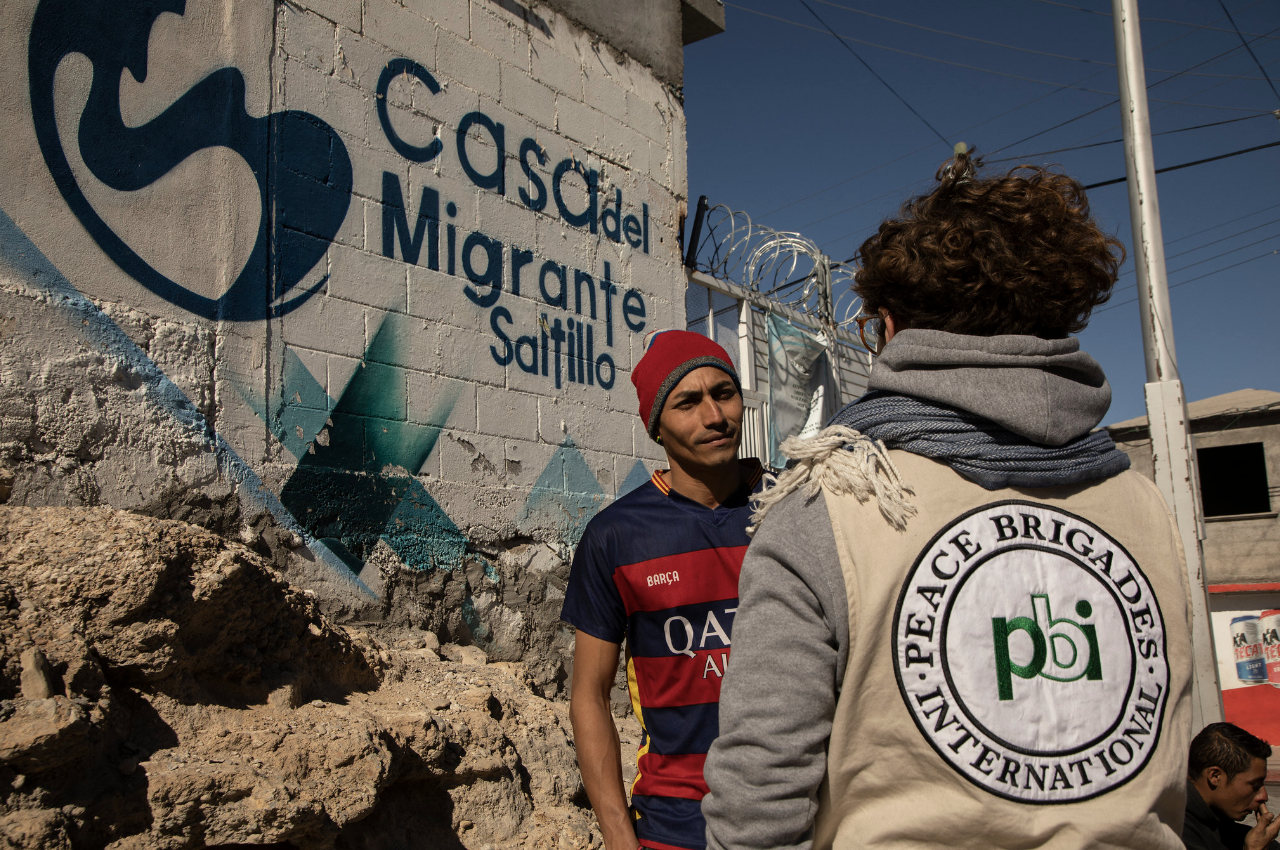Volunteering with PBI
The volunteers of Peace Brigades International come from many different countries and backgrounds. What these volunteers share is a strong commitment to nonviolence and a belief in the contribution that everyone can make to creating a more peaceful and just world.

What does a PBI team do?
When there is a conflict, certain actions are possible and appropriate for outsiders - others are not. A PBI team seeks to encourage, by means of an international, nonviolent, non partisan presence, a peaceful resolution. To do this, PBI teams:
- Offer support and protective accompaniment to (environmental) human rights defenders, groups or individuals threatened with violence;
- Develop a thorough analysis of the political situation by listening to the widest possible range of viewpoints and experiences while respecting needs for confidentiality;
- Report to the outside world a non-partisan analysis of the situation as seen on the ground in the area;
- Meet regularly with local and national civil and military authorities and embassies to raise concerns regarding human rights abuses as they affect the organisations we accompany.
PBI is not a development organisation. We believe that communities need a safe(r) space to carry out their strategic actions in ways that create self reliance rather than dependency. We refer requests for development projects to other organisations set up for such work.
What does PBI offer volunteers?
PBI volunteers gain:
- A profound experience of working with an international peace and human rights organisation committed to transforming ideals into practical action
- Specialist training based on over 40 years experience working in the field
- The experience of living and working in a close-knit team of volunteers from many different countries and backgrounds
- A unique first-hand insight into the intense pressures faced by human rights defenders and their resilience and courage
PBI covers the costs of travel to country of work, accommodation, food, internal travel, insurance, repatriation and also offer a stipend to cover additional costs.
Please note: PBI volunteers share a house which serves as living quarters as well as an office. Usually it is a very international and diverse house.
PBI is committed to ensuring that volunteers are supported before, during and after their volunteer experience. We have developed diligent quality standards for providing emotional support for volunteers throughout their time with PBI - during preparation, volunteer experience and reintegration. Our partnership with the European Association of Gestalt Therapy (EAGT) enables PBI volunteers to get professional support if they need it. Volunteers can get individual support from mental health professional from EAGT during and after their engagment with PBI. EACG also offers other pro-bono services to PBI such as the mentor training and the possibility of coaching teams in the field.
Requirements
- A clear understanding of and commitment to nonviolence.
- Language skills - fluent Spanish is essential for working in Colombia, Guatemala, Honduras and Mexico.
- Discretion and diplomacy
- Maturity – volunteers are usually over the age of 25
- Resilience - the ability to work effectively under pressure.
- Knowledge and understanding of the history, politics and culture of the country where you are working.
- Cross-cultural skills and sensitivity - the ability to work with people of different backgrounds, demonstrated through previous experiences.
- Able to make a minimum commitment of one year (or 18 months for Colombia).
More questions?
For more information, please visit the Applicants FAQ, the pages of the offices that currently offer this type of volunteer work Colombia, Guatemala, Honduras, and Mexico and a short reflection on how to prepare for your time after the volunteer experience.
Also, please contact the PBI office closest to you or the International Office in Brussels.
